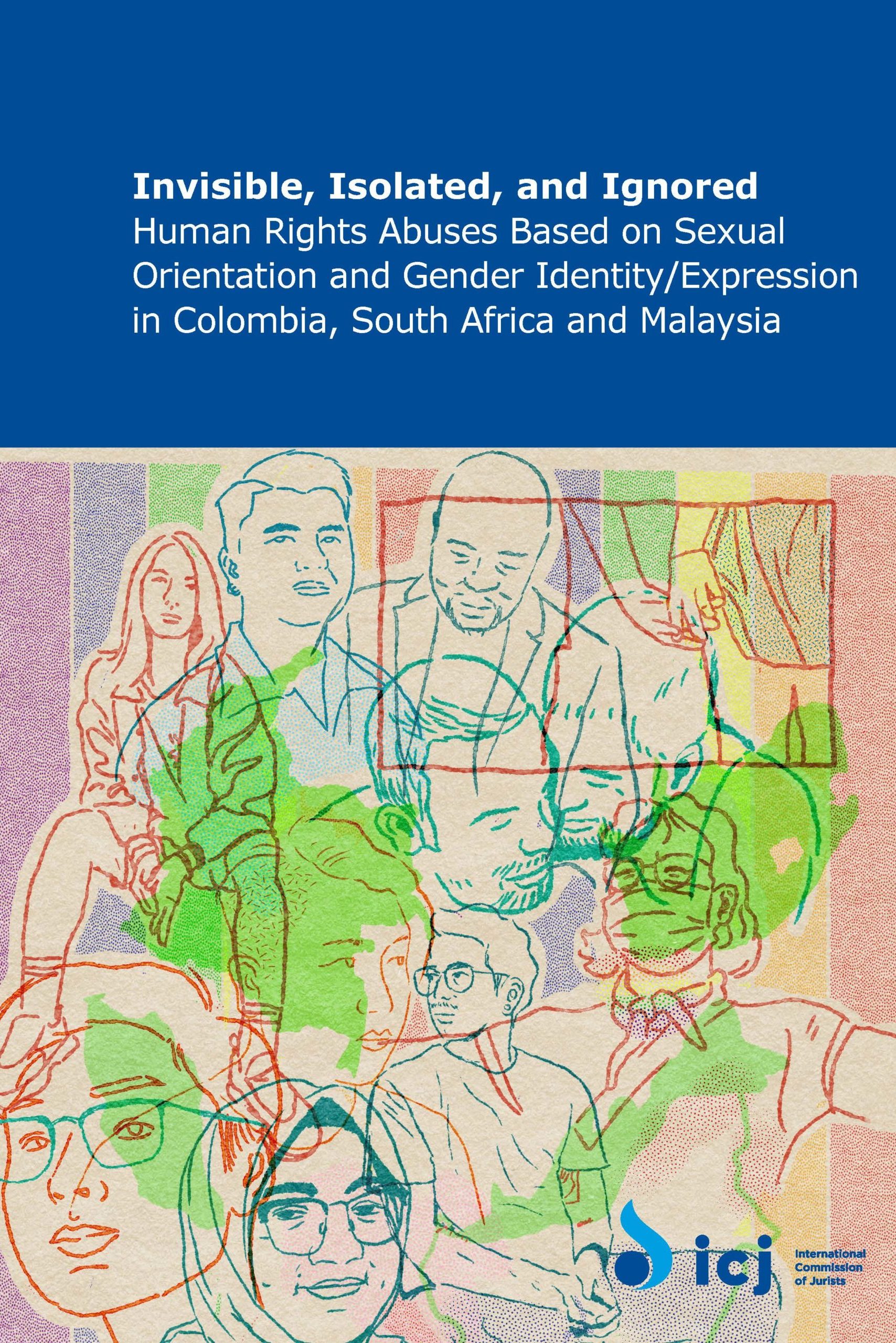For International Transgender Day of Visibility, the ICJ launched a report setting out an overview of States’ legal obligations under the international human rights framework in relation to issues of sexual orientation, gender expression and gender identity, and an analysis of the human rights situation of LGBT persons in Colombia, Malaysia and South Africa.
The 60-page report, Invisible, Isolated, and Ignored: Human Rights Abuses Based on Sexual Orientation and Gender Identity/Expression in Colombia, South Africa and Malaysia, was launched through a discussion facilitated by The Cheeky Natives, a literary podcast, with four activists from the three countries on which the report focussed. The activists discussed the content of the report through the lens of their own experience of working with LGBT persons in the respective countries
“As a country, South Africa has possibly one of the most progressive constitutions in the world. It explicitly names sexual orientation. We recognise civil unions; we have a legal gender recognition law. On paper, we are beautiful. In practice, I think we have continuously failed to actualise these rights: access to education, access to healthcare, access to anything that is a general need for every other human being has not been the same for LGBTI people and as marginalised as LGBTI people are in the country, Trans people sit on the margins of that marginalisation,” said Akani Shimange, Director of Matimba, a South African organisation which advocates for kids and teenagers that are transgender or/and gender variant to have happy and healthy lives.
The report aims to offer an overview of different contexts and issues relevant to the respect, protection and promotion of the human rights of LGBT people through a human rights-based analysis and, in so doing, it aims to support lawyers working to enhance protection for the human rights of LGBT persons within their challenging domestic legal frameworks.
“To this day, discrimination and abuse on the basis of sexual orientation and gender identity remain rampant around the world. It is important to listen to accounts of LGBT persons who constantly face criminalization, lack of acceptance and continued violence in a climate of impunity exacerbated by the COVID-19 outbreak. This report considers these obstacles, and also makes recommendations to overcome them,” said Sam Zarifi, Secretary General of the ICJ.
The report provides support to the work of LGBT human rights defenders working on human rights issues, as well as assisting policymakers to better understand the impact of law and policy on the human rights of LGBT persons globally.
In addition, the report makes country-specific recommendations to enhance respect, protection and promotion of the human rights of LGBT persons with a view to ameliorating their lives. In Malaysia, where the laws are considerably different from the more progressive Colombian and South African legal frameworks, the recommendations mostly focused around the decriminalization of same-sex consensual conduct and abolition of all laws that criminalize sexual orientation and gender diverse identities as these laws threaten the safety and security of LGBT people and also detrimentally affect the ability of LGBT persons to exercise and enjoy their human rights without discrimination.
As for the Colombian and South African recommendations, the emphasis was on ensuring LGBT persons’ effective access to and enjoyment of existing rights, as well as conducting training programmes on the human rights of LGBT persons based on national and international human rights standards. Additionally, the report calls for programmes to raise awareness about harmful stereotypes, including the use of pejorative language, directed at LGBT persons. In particular, with respect to South Africa, the report documented the limitation on the enjoyment of human rights that have arisen as a consequence of making medical interventions and medical reports mandatory for gender marker change.
Contact
Nokukhanya (Khanyo) Farisè, Legal Adviser (Africa Regional Programme), e: nokukhanya.farise(a)icj.org
Tanveer Jeewa, Legal and Communications Officer (Africa Regional Programme), e: tanveer.jeewa(a)icj.org
Download
Colombia-SouthAfrica-Malaysia-SOGIE-Publications-Reports-Thematic reports-2021-ENG

